Field Camp
The Miami University Summer field geology courses have been significantly changed from past offerings. Beginning in 2025, both undergraduate (GLG 411) and graduate (GLG 511) Field Geology courses will be offered as 3-week/3-credit courses. This change has been done to reduce overall student costs while at the same time maintaining a high-level of academic rigor. To do this, our courses have been distilled to remove some of the “geo-tourism” aspects of previous courses in order to maintain the overall practical content of previous offerings. GLG 411/511 learning outcomes continue to be focused on developing proficiencies in geological field methods and interpreting field data. Our courses are designed to emphasize the field description and documentation of igneous, metamorphic, and sedimentary rocks, the interpretation of outcrop- and regional-scale structures and the tectonic evolution of the western Cordillera.
Time will be spent working within the spectacular scenery and varied geology of western Montana. Study localities include the Madison Range, Elkhorn Mountains, and the Sawtooth Range. Course logistics include three weeks of camping throughout the region.
Due to the accelerated schedule, our courses require that students have previously completed a 3-credit, undergraduate-level, geological field-methods course. Suggested prerequisites for the course also include lecture/lab courses in Physical Geology, Mineralogy, Sedimentology and Stratigraphy, Structural Geology and Igneous/Metamorphic Petrology.
Applications for each course are reviewed beginning in late 2024, with acceptance decisions made in February. Applications will be accepted and reviewed until all available spots are filled.
78 Years of Training Geologists
- Students will use their own camping gear throughout the course. Lightweight camping equipment is strongly suggested, as luggage space is limited. Sharing is encouraged where possible. A warm sleeping bag and sleeping pads are recommended.
- Clothing and Personal items: Field clothes are worn on most occasions. Temperatures may be high during the day and quite low in the evening. A difference of 40°F in a period of 24 hours is not unusual. Be prepared for high wind, bright sun, rain/snow, night temperatures between 25°- 45°F, and day temperatures between 55° - 95°F (see page 2).
- Note on packing: Pack lightweight gear in duffel bags or soft, collapsible suitcases. Large, rigid suitcases, footlockers, and trunks are prohibited. You are limited to a maximum of two luggage items (soft-sided only) plus a carry-on (day pack) for the traveling portion of the course.
- Up-to-date tetanus and COVID-19 vaccinations are highly recommended.
- You must carry domestic health care insurance.
Clothing
- Sunglasses.
- Field Hat with brim.
- Rain Gear - Summer in the mountains is a relative concept so a good outer layer is necessary.
- Both light and heavy socks (two pairs per day).
- Above-the-ankle field or hiking boots are required equipment. Hiking shoes provide insufficient foot support for the terrain we will be working in and are unacceptable (See Page 3). If you buy a new pair of boots, they should be "broken in" before the class begins
- Hiking/running shoes (for when we are not mapping in the field), sandals.
- Warm clothes including warm gloves and a warm hat or fleece/hooded sweatshirt (Think layers!).
- Long-sleeved shirts, t-shirts. Long pants with pockets (ie cargo pants or military fatigues are recommended). Leggings and shorts are not recommended as tough vegetation can shred them and your legs will be prone to scratches, scrapes and insect bites.
- There is no need for dressy clothing. In the West, dress is casual, even in the better saloons.
- You will have the opportunity to do laundry at least once per week.
Personal Items
- Driver’s license and Health Insurance cards.
- Mobile phone, pocket money, ATM/credit card.
- Small first-aid kit, chapstick, sunscreen, insect repellent, foot powder, or baby powder, for example.
- Personal toiletries and medicines for headache, allergy, heartburn, athlete's foot, etc., as may be needed.
- Towel and washcloth.
- Flashlight and pocket knife.
- A good warm sleeping bag and a pillow – a bag rated to at least 20°F is an excellent choice. Rectangular bags are more comfortable than mummy bags and warmer as they compress less against your body and thus provide better insulation
- Soft backpack for day-hikes (~2000 cu in.; No frame packs).
- Small binoculars (not mandatory, but useful).
- Personal water containers for the field (plan to carry at least 3 liters at all times).
Bring your gear in duffel bags or soft, collapsible suitcases. Large rigid suitcases and trunks are prohibited. Please pack lightweight equipment, if possible. Students do not need computers.
Required Course Supplies
Rock hammer (not a sledge), a hammer holster, and a dedicated belt to hold it. A hand lens (10x) is also required. Assorted pencils, colored pencils, pens, a white rubber eraser, protractor, and a calculator.
Field notebooks, notebook holders, Brunton compasses, auto and hand-held GPS receivers, portable two-way radios, a large first-aid kit, bear spray, and food storage containers are standard field equipment supplied by the course.
Camping Equipment and Supplies
The gear listed below is necessary for the traveling portion of the course.
- A good 3- or 4-season tent (borrow and/or share if possible) with a waterproof ground cloth. Large (4+ person), vertical-sided tents are PROHIBITED as they are highly SUSCEPTIBLE to wind damage (see Page 4).
- A good warm sleeping bag and pillow, and a mattress pad to put under your sleeping bag.
- A small, simple cooking pot; hot/cold drinking cup; and knife, fork, and spoon set. Large pots for boiling water and large serving utensils are provided. Two-burner camp stoves and propane for student use will be provided.
- Zip-loc plastic bags for storage of toiletries, food, or other aromatic items (we will be in bear country).
- Money to buy the food you like to eat during the traveling portion of the course (about $15/day). Think cheap, simple, fast, and group cooking. There are frequent opportunities to purchase food during the traveling weeks.
We will not backpack, but a good daypack capable of carrying raingear, lunch, and at least 2 liters of water is essential.
Rendezvous
We will assemble near Bozeman, Montana at 3:00 PM, Sunday June 22. All participants must be present by this time.
Ground Travel – Private Vehicles
Students are not permitted to drive personal vehicles to field camp. If you plan to have someone drop you off near Bozeman, Montana on June 22, please contact Dr. Currie for directions to the meeting location. You must arrive by 3 PM. The course ends at 7:00 AM, Tuesday July 15 at the Sun Canyon Lodge, near Augusta, Montana but you could leave as early as the evening of July 14 if you have someone pick you up.
Ground Travel – Miami University Vans
Multiple vehicles will depart from the South Cook Field Lot (Entrance off OH 72, Oxford, OH) at 7:00 AM, Friday June 20. The trip will involve three days of travel, arriving in Bozeman on Sunday June 22. Vehicles will return to Oxford late in the evening on Wednesday July 16 or early afternoon on Thursday July 17, depending on final travel schedules that will be determined by the end of Spring Semester.
More information will be provided later, but there likely will be room for approximately 14-20 passengers, at least 8 of whom must be approved as Miami University drivers (having completed the on-line university safety program), with two slots taken by instructors. If you want a spot in the University vans, please contact Dr. Currie as soon as possible.
Air Travel
Air travel is somewhat complex, as we will have different arrival and departure cities.
Arrivals: Your arrival point in Montana is the Bozeman International Airport (BOZ). Participants planning to fly should arrange a flight as soon as possible (after verifying dates with Dr. Currie) to ensure direct connections and to obtain the best possible fares. Please pack as if you are going backpacking, luggage space will be limited! You must arrive at the airport no later than 1:00 PM Sunday June 22. We will make a pick-up at the airport at about 1 PM. Again, if you are flying, you must arrive in Bozeman prior to 1 PM on Tuesday June 22! If you cannot make it to Montana by that time, you will have to fly in earlier.
Departures: Your departure city is Great Falls, Montana (GTF). Your departure from Great Falls has to be after 11 AM on Tuesday July 15. If earlier than that, you will be required to get a room in Great Falls on Monday evening (we can transport you there) and arrange your own transport to the airport the next day.
Field Course Director Contact: Brian Currie, Email: curriebs@miamioh.edu; Cell: 513-602-5589.
| Date |
Events |
|---|---|
| Sun., June 22 |
Course beings near Bozeman, MT @ 3 PM...Welcome! Trapper Springs Campground, South Beartrap Canyon Rd., Norris, MT 59745 |
| Mon., June 23 |
Crystalline Rock Traverse, Beartrap Canyon; Trapper Springs Campground |
| Tues., June 24 |
Madison Canyon Igneous/Metamorphic Map Project; Trapper Springs Campground |
| Wed., June 25 |
Madison Canyon Igneous/Metamorphic Map Project; Trapper Springs Campground |
| Thurs., June 26 |
Madison Canyon Igneous/Metamorphic Map Project; Trapper Springs Campground |
| Fri., June 27 |
Bradley Creek Map Project; Trapper Springs Campground |
| Sat., June 28 |
SW Montana Tectonic Overview; TBD Motel, Helena, MT |
|---|---|
| Sun, June 29 |
Day Off; Silos/Canyon Ferry KOA, Townsend, MT |
| Mon., June 30 |
OWG Road Map Project; Silos/Canyon Ferry KOA, Townsend, MT |
| Tues., July 1 | OWG Road Map Project; Silos/Canyon Ferry KOA, Townsend, MT |
| Wed., July 2 | OWG Road Map Project; Silos/Canyon Ferry KOA, Townsend, MT |
| Thurs., July 3 | OWG Road Map Project; Silos/Canyon Ferry KOA, Townsend, MT |
| Fri., July 4 | Limestone Hills Map Project; Silos/Canyon Ferry KOA, Townsend, MT |
| Sat., July 5 | Limestone Hills Map Project; Silos/Canyon Ferry KOA, Townsend, MT |
| Sun., July 6 |
Day Off; Silos/Canyon Ferry KOA, Townsend, MT |
| Mon., July 7 | Townsend, MT to Sun Canyon, MT; Sun River Canyon Final Mapping Project; Sun Canyon Lodge, P.O. Box 327, Augusta, MT 59410, 406-562-3654 |
| Tues., July 8 | Sun River Canyon Final Mapping Project; Sun Canyon Lodge |
| Wed., July 9 | Sun River Canyon Final Mapping Project; Sun Canyon Lodge |
| Thurs., July 10 | Sun River Canyon Final Mapping Project; Sun Canyon Lodge |
| Fri., July 11 | Sun River Canyon Final Mapping Project; Sun Canyon Lodge |
| Sat., July 12 | Sun River Canyon Final Mapping Project; Sun Canyon Lodge |
| Sun., July 13 | Sawtooth Range Independent Exercise/Sun River Canyon Final Mapping Project; Sun Canyon Lodge |
| Mon., July 14 | Sun Canyon Map Day; Sun Canyon Lodge |
| Tues., July 15 | Course Ends @ 7 AM; Depart for Ohio |
|
Tuition - 6 credits - Undergraduate Level *Summer Tuition Plus $175 Global Programs Administrative Fee |
Bursar |
Instate: |
Out of State: |
|
Program Fee TOTAL is $1200 Program Fee Balance: $1200 Includes housing, ground transportation, program activities, and most meals. *including $500 deposit*
|
Deposit: Paid on Application Portal
Bursar |
$1200 |
$1200 |
|
*Final Tuition/Fees subject to change. Program fee includes transportation and lodging plus meals for ~2.5 weeks of the 3-week course. |
|
|
|
|
Total Costs Paid to Miami |
$3,153.00 |
$5,667.00 |
|
Tuition - 6 credits - Graduate Level *Summer Tuition Plus $175 Global Programs Administrative Fee |
Instate: $2,088.00 |
Out of State: $4,718.00 |
|
Program Fee $1200 Includes housing, ground transportation, program activities, and most meals. *including $500 deposit* |
$1,200.00 | $1,200.00 |
|
Total Costs Paid to Miami |
In-state: $3288.00 |
Out of State: $5918.00 |
*Plus individual food costs for travel/camping days (approximately $200) and travel to and from Wyoming (no cost van transportation from Ohio available). Final Tuition/Fees are subject to change.
Boot Options
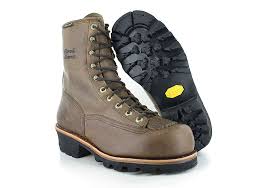
Best: 8" high ankle support, all leather construction, yellow tag Vibram sole. This is what I wear. I usually get 3-4 years out of a pair such as these before the soles to (but you can get them re-soled!)

Better: 8" high ankle support will give you lots of support and keep most stuff out of the boot. However, while non leather materials make the boot lighter, they are also highly susceptible to abrasion. Non-yellow tag Vibram soles will also get word down in short order. You will likely get only 1-2 years of wear if you continue to do field geology (that is why the military only does 1 year tours!)
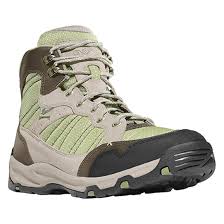
OK: 6" high ankle support will give you some support and keep a lot of stuff out of the boot. Consider this a minimally acceptable style.
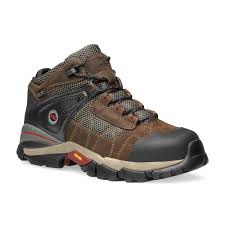
Marginally OK: But the lack of higher
ankle support will make you feel unstable on steep slopes. You will also spend a lot of time pulling out debris that will get into your boots.
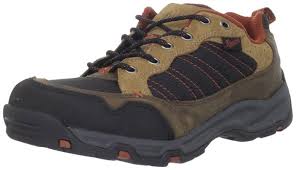
Inadequate: You need ankle support to do the things we are going to do. These will not cut it!
Tent Options
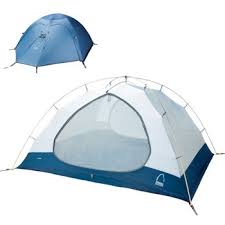
Best: Low profile, small footprint,
with good rain fly coverage
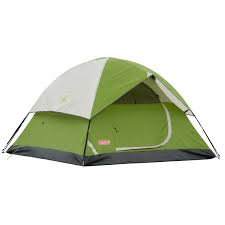
Adequate, but due to the open fly,
if we get a thunderstorm, you will
be wet and your tent might shred
in the wind.
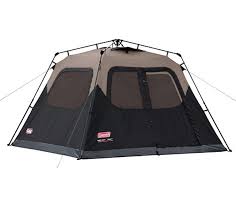
NO! Near vertical walls turn into sails in
the wind. Its large footprint also hogs limited
pad space at National Park campsites
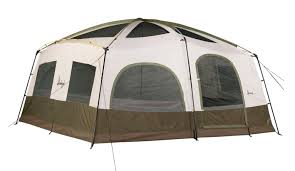
Please NO! The infamous "Wyoming
Thunderstorm Tragedy of 2011" occurred
in large part due to this type of tent.